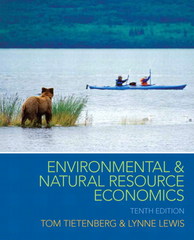Question
Mike has a wealth of $1,000 and he does not need it for the next year. He is trying to decide whether to deposit it
Mike has a wealth of $1,000 and he does not need it for the next year. He is trying to decide whether to deposit it in a Bank or buy his own state-of-the-art safe. He thinks there is a 18% chance that the bank will go bankrupt during the course of the year. If the bank goes bankrupt, the bank's deposit insurance scheme will ensure he gets back $250 at the end of the year, but the other $750 will be lost. If the bank does not go bankrupt, the bank will pay Mike 10% interest at the end of the year. On the other hand, if Mike puts the money into his own safe, he is sure that it will still be there at the end of the year (it is a very good safe). However, he will have to pay for the safe, reducing his wealth, and he will not earn any interest. His utility over wealth is u(W)=2W and he maximizes his expected utility.
- a) What is Mike's expected utility from putting his money in the bank?
- b) If the safe costs Mike $5 to buy and install, would he buy the safe or put his money in the bank instead?
- c) what if reducing the probability of bankruptcy during the year to only 13%, but the interest which he earns over that time will be reduced to 5%. The new bank will continue to offer the same deposit insurance up to $250. What is the maximum value that Mike will now pay for a safe?
Step by Step Solution
There are 3 Steps involved in it
Step: 1

Get Instant Access to Expert-Tailored Solutions
See step-by-step solutions with expert insights and AI powered tools for academic success
Step: 2

Step: 3

Ace Your Homework with AI
Get the answers you need in no time with our AI-driven, step-by-step assistance
Get Started


